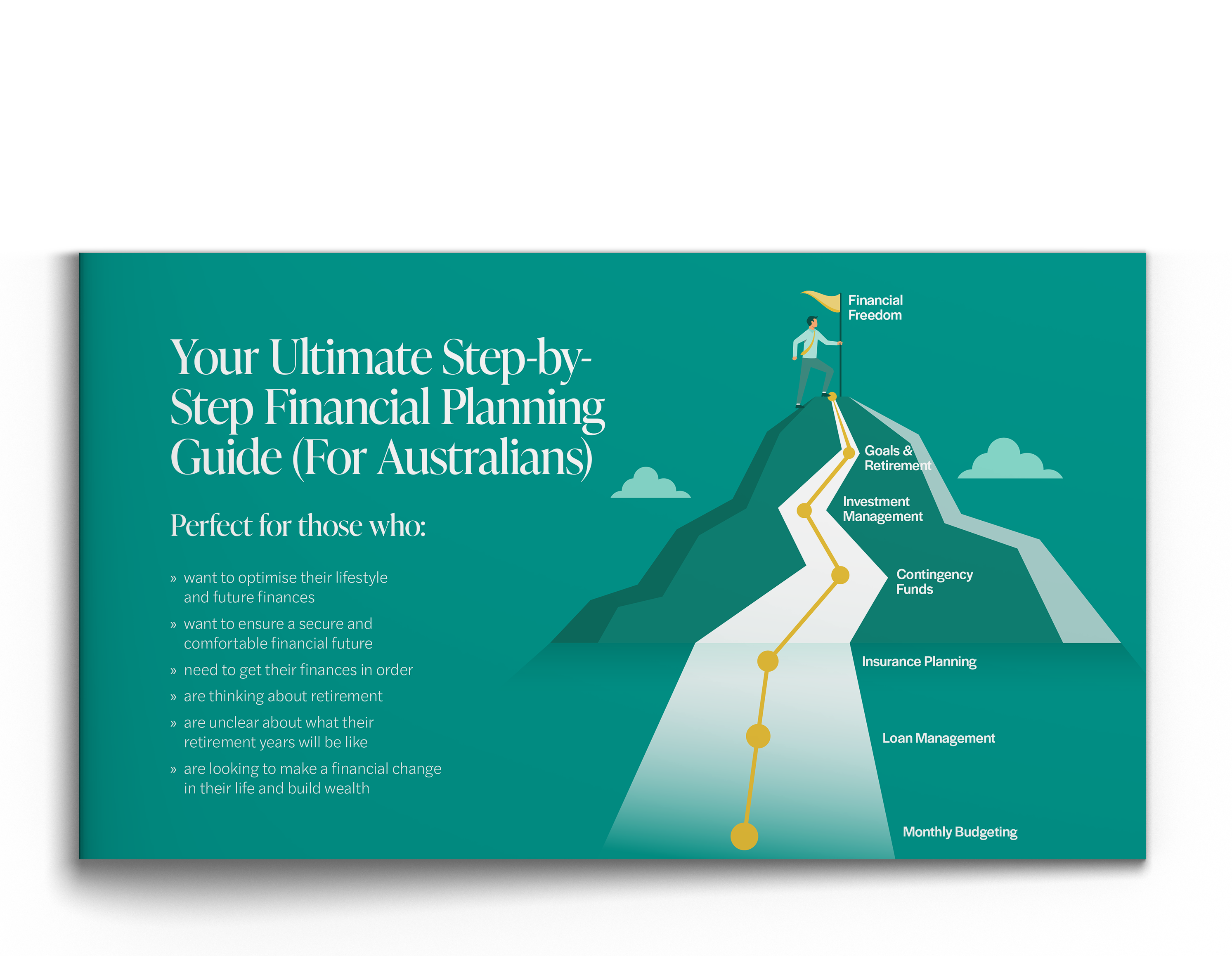Just like your financial goals, lifestyle, and circumstances evolve over time, so too should your insurance coverage. Whether it's health, home, car, or life insurance, regularly reviewing your policies ensures you’re not overpaying, underinsured, or missing out on better options.
What is an Insurance Review?
Think of an insurance review like a regular health check-up—but for your policies. It’s a chance to sit down, take a fresh look at your existing policies, and see whether they’re still doing their job. That means checking if your cover still fits your life, identifying any blind spots, and making sure you’re not paying more than you need to. It’s a simple step that can go a long way in keeping you—and the things you care about—protected.
Why should I review my insurance policies?
Keeping Up with Life Changes
A policy that suited you five years ago may not be suitable for where you are now. Big life moments—like tying the knot, welcoming a new baby, buying your first home, or landing a new job—can all shift what kind of cover you need.
Avoiding Coverage Gaps
When the cost of living and property values rise, the amount of cover you have might not actually go that far. If your coverage hasn’t kept up, you could find that you’re not adequately covered and end up out of pocket.
Checking for New Policies and Terms
Insurance policies don’t stay the same forever. Giving yours a once-over can reveal outdated details or sneaky exclusions that may not work for you.
How often should I review my insurance policies?
Once a Year
It’s easy to time a review of our policies when your premiums are due. This helps you stay current with market changes and your evolving needs.
After Major Life Events
Significant milestones, such as marriage, divorce, having children, buying a property, or changing jobs, are all times to review your cover.
During Your Review with Your Adviser
Your annual financial plan review is the perfect time to give your insurance a check-up too. When you sit down with your adviser to review your goals and strategy, it’s also a good opportunity to make sure your insurance still fits your life and finances. A quick conversation can help you stay protected, avoid gaps in cover, and make sure everything is working together to support your long-term plans.
What to look at when reviewing my insurance?
Reviewing your insurance doesn’t need to be complicated. Here are the key areas to focus on so you can make sure your policy is still working hard for you:
- Coverage Limits: Do your coverage limits still make sense for where you’re at in life? As your income, responsibilities or lifestyle change, your cover should change too. You don’t want to find yourself underinsured just when you need protection the most.
- Deductibles (Excess): Would the out-of-pocket cost you’d have to cover if something happened still feel manageable today? Take a moment to check whether your current excess amount makes sense for your budget and financial comfort zone—it’s better to adjust now than be caught off guard later.
- Exclusions: Are there any changes—like removed benefits or new exclusions—that might catch you off guard if you ever need to make a claim? It’s important to know exactly what is and isn’t covered so you’re not left with an unpleasant surprise.
- Premiums: Is your premium giving you the protection you actually need? It’s worth checking if you could be getting more value—or paying less—for the same or better coverage.
While it’s important to keep an eye on your overall insurance cover, there are certain types of policies that deserve a closer look. Each plays a different role in your financial protection, so here’s what to keep in mind when reviewing different kinds of insurance:
Health Insurance
- Coverage Options: Do your inclusions still reflect your medical needs?
- Premium Changes: Have costs increased without a change in benefits?
- New Medical Needs: A new diagnosis or stage of life may require more comprehensive cover.
Home Insurance
- Property Value Increases: Your sum insured should reflect rising market and rebuild costs.
- Weather Events: Coverage may need to be adjusted based on your area’s risk factors.
- Renovations and Upgrades: Any improvements to your property should be factored in.
Car Insurance
- Adding New Drivers: If your teen or partner is driving your car, they should be included.
- Vehicle Upgrades: A newer or more valuable vehicle may require more comprehensive protection.
- Reviewing Excess Amounts: Ensure it aligns with your ability to pay in the event of a claim.
Life Insurance
- Changing Dependents: Include children, spouses, or others who rely on you financially.
- Policy Loans and Withdrawals: Check how these affect your benefit.
- Beneficiary Updates: Ensure the people you want to receive the benefit are still correctly listed.
Why does insurance form part of my financial plan?
Insurance is your financial back-up plan—there to catch you when life throws the unexpected your way. It helps shield the progress you’ve made and keeps your long-term goals on track. Taking the time to review your cover regularly means that the safety net grows and shifts with you, giving you confidence that you’re protected, and so is the journey towards your goals.
What insurances are included in a financial plan?
When we talk about insurance as part of a financial plan, we’re not just ticking boxes—we’re making sure your future (and your family’s) is protected if life doesn’t go to plan. Different types of cover play different roles in supporting your overall strategy, depending on your stage of life, financial commitments, and personal circumstances.
Here are the key insurances typically considered for a financial plan:
Life Insurance
Life insurance provides a lump sum payment to your loved ones if you pass away. This can help clear debts, cover ongoing living expenses, and provide financial security to your dependents. It’s particularly important if you have a partner, children, or others who rely on your income or support.
Total and Permanent Disability (TPD) Insurance
TPD insurance pays a benefit if you’re permanently unable to work due to illness or injury. It’s designed to help cover medical costs, ongoing care, or changes to your lifestyle and home. Including TPD in your plan means you’re better prepared if the unexpected affects your ability to earn an income long-term.
Trauma Insurance
Also known as critical illness cover, trauma insurance pays a lump sum if you’re diagnosed with a serious medical condition like cancer, heart attack or stroke. This money can be used for treatment, rehabilitation, mortgage repayments, or simply allowing you time to recover without financial stress.
Income Protection
If you’re unable to work due to illness or injury, income protection replaces a portion of your income—usually up to 70%—so you can continue covering your essential expenses. It’s an essential safety net, especially if your household depends on your income. Here is more information about income protection insurance.
Children’s Trauma Insurance
This lesser-known cover provides financial support if your child suffers a critical illness. It can help cover treatment costs, allow a parent to take time off work, and reduce financial stress during what would already be an emotionally difficult time. For families, it’s an extra layer of peace of mind.
Case Study: Simplifying Insurance and Saving Thousands
A couple in their 40s recently came to us for help after realising they were spending a $41,000 a year on insurance premiums. They wanted a review of their cover, to understand what they were paying for and what they were covered for. Their cover included Life, Total and Permanent Disability (TPD), Trauma, Income Protection and Children’s Trauma insurance.
Together, we reviewed their existing policies and worked out what was essential, what could be adjusted, and where they were potentially overinsured. By tweaking the terms and removing cover that was no longer relevant, we brought their total premiums down to $20,000 a year—without compromising on the protection they needed. With no new applications and no reduction in peace of mind, they’re now saving tens of thousands—proof that a review can make a big difference.
A couple in their 40s recently came to us for help after realising they were spending a $41,000 a year on insurance premiums. They wanted a review of their cover, to understand what they were paying for and what they were covered for. Their cover included Life, Total and Permanent Disability (TPD), Trauma, Income Protection and Children’s Trauma insurance.
Together, we reviewed their existing policies and worked out what was essential, what could be adjusted, and where they were potentially overinsured. By tweaking the terms and removing cover that was no longer relevant, we brought their total premiums down to $20,000 a year—without compromising on the protection they needed. With no new applications and no reduction in peace of mind, they’re now saving tens of thousands—proof that a review can make a big difference.
Need help with your insurance review?
At Green Associates, we believe insurance is about peace of mind. Our experienced advisers can help you review your current policies, identify gaps or opportunities, and make sure you’re getting value and protection tailored to your life.
Find out more about our insurance services, or book a meeting with our team today!
FAQs
Is it bad to be overinsured?
Yes—being overinsured can mean you’re paying for cover you don’t actually need. That’s why regular reviews are important. A financial adviser can help you adjust your policies so you’re protected without overspending.
What happens if I don’t review my insurance regularly?
If your policy becomes outdated, you risk being underinsured, paying too much, or having cover that no longer matches your needs. In a worst-case scenario, you could be left financially exposed when you need support the most.
How can a financial adviser help with an insurance review?
A financial adviser will help you understand your current policies, identify any gaps or overlaps, and recommend adjustments that better suit your goals, budget and circumstances—all while taking the stress out of the process.
Can I update my insurance without applying for new cover?
Often yes. Depending on your policy and provider, you might be able to adjust coverage levels, remove optional extras, or restructure premiums without going through a new application or medical underwriting process.
Can I proceed with my financial plan without insurance?
Technically, yes—you can build a financial plan without insurance, but it leaves you vulnerable to unexpected events that could derail your progress. Insurance acts as a safety net. Without it, a serious illness, injury, accident, or loss of income could force you to dip into savings, sell assets, or pause your long-term goals like buying a home or retiring comfortably. Having the right insurances—like life, income protection, trauma or TPD cover—means your financial plan isn’t just about growth, it’s also about protecting what you’ve worked hard to build. It’s not about planning for the worst; it’s about giving yourself and your loved ones peace of mind, no matter what life throws your way.





